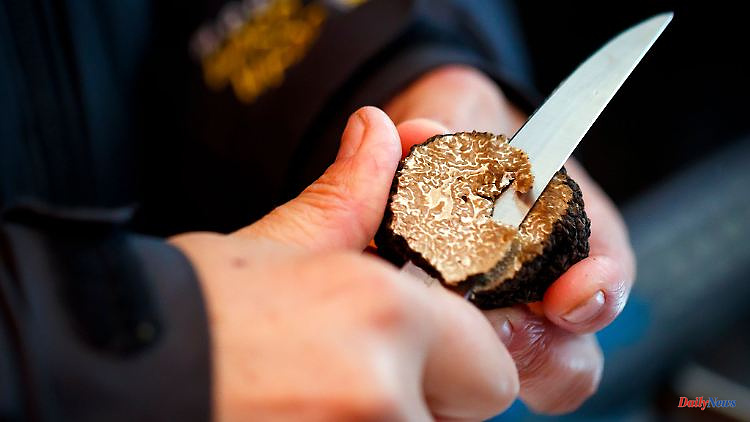Truffles are not only for foodies, they are also important for the forest ecosystem. But climate change is causing problems for the noble mushrooms.
Birmensdorf/Konstanz (dpa/lsw) - According to a study, the coveted edible mushroom Burgundy truffle is becoming rarer due to climate change in Germany and Switzerland. This is due to the increase in hot and dry summers, the Swiss Federal Institute for Forest, Snow and Landscape Research WSL reported on Thursday. "Our results show that the Burgundy truffle is threatened by an alarming trend towards increasing summer drought in Europe," says ecologist and study author Brian Steidinger from the University of Konstanz, who has been collaborating with the WSL.
This is not only a culinary problem, but also an ecological problem, writes the WSL. Truffles are symbiotic fungi that provide their host trees with vital nutrients and water and are therefore an important part of the forest ecosystem. The results of the study were published in the journal "Global Change Biology".
The research facility has been regularly examining the harvest from truffle test areas in Switzerland and Germany since 2011 and comes to the conclusion: "An average summer temperature that is one degree higher reduces the yield by almost a quarter (22 percent), and in some locations even up to 70 percent." At three degrees more heat, there are no more truffles. Volunteers and scientists with truffle dogs weigh and measure their harvest in the test areas every three weeks and transmit the results as well as measurement data on the climate and tree growth to the WSL.
The researchers were surprised by the result, as the WSL explains, because the Burgundy truffle actually thrives in dry regions like Spain. However, the central European variants apparently did not tolerate the same temperatures as southern variants. It should be considered whether truffle varieties that tolerate drought better should be exposed to the trees in Germany and Switzerland, said Martina Peter, head of the WSL group Ecological Genetics. "You have to carefully consider whether this makes financial and environmental sense or does more harm than good," she said.
The black Burgundy truffle is one of the most traded varieties worldwide. According to the Association for Truffle Cultivation and Use, it is cultivated throughout Germany.












